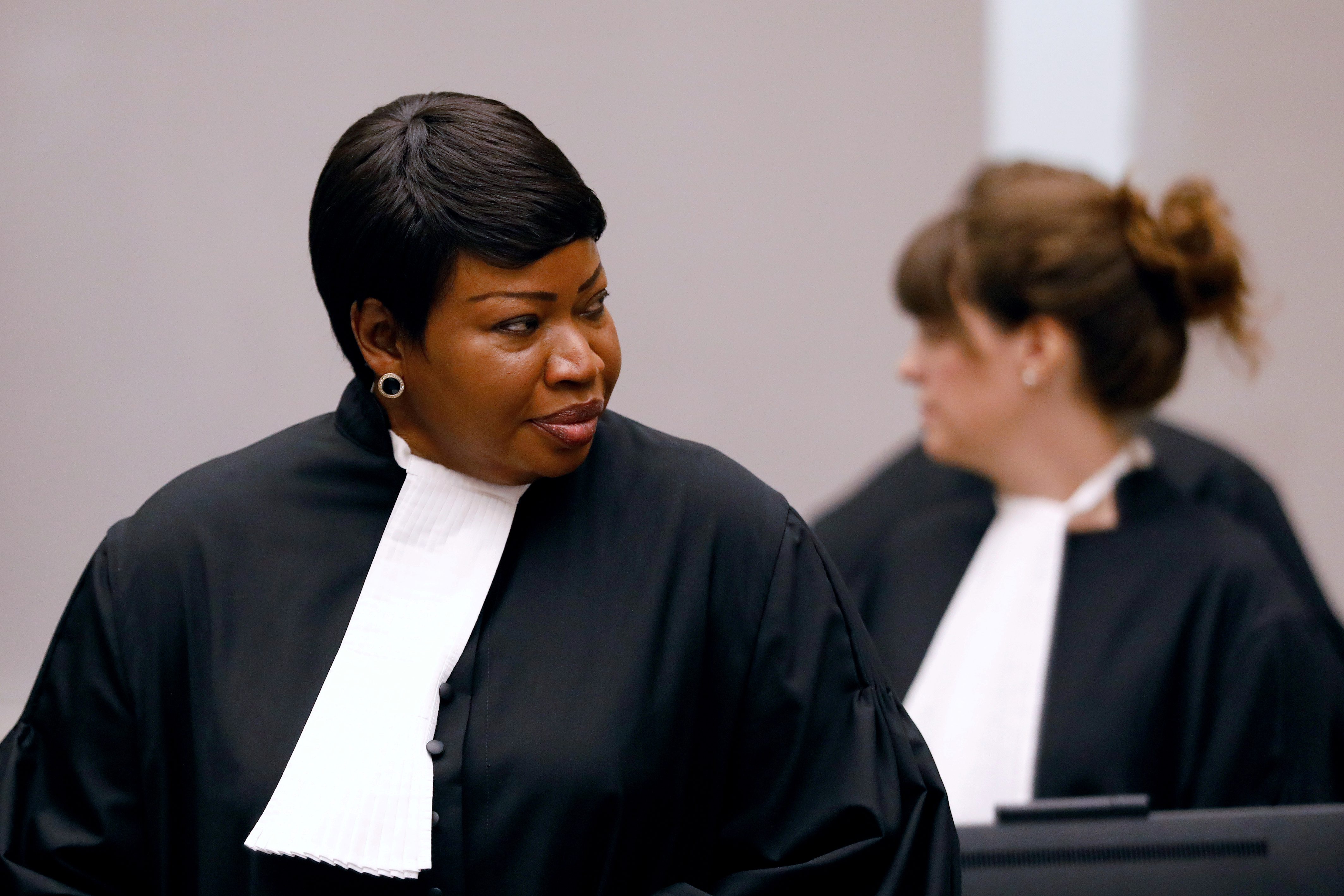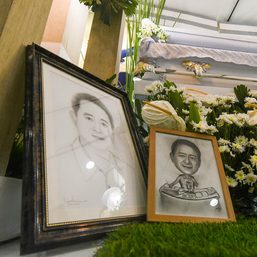SUMMARY
This is AI generated summarization, which may have errors. For context, always refer to the full article.

Prosecutor Fatou Bensouda will be leaving the International Criminal Court (ICC) due to retirement on June 15 as the Philippines awaits the next move on the drug war case against the Duterte government, which should also be within the same month.
Bensouda’s successor, Britain’s Karim Khan, will officially start on June 16.
It was Bensouda who opened the preliminary examination into killings in President Rodrigo Duterte’s war on drugs, where she said there was “reasonable basis to believe” that crimes against humanity were committed.
Bensouda said the decision whether to open a formal phase of the investigation, where summons and arrest orders can be issued, would be announced by the first half of 2021, which is June. The ICC’s Office of the Prosecutor earlier told Rappler it was on track with the original timeline.
“Maybe there will be a decision by the Prosecutor in the coming days, we don’t know, but we’re closely monitoring it,” Philippine human rights commissioner Karen Gomez Dumpit told ANC’s After the Fact Friday night, May 28.
The wait for this crucial move by the ICC coincides with synced announcements by the Philippine National Police (PNP) and Department of Justice (DOJ) to share death case folders for the purpose of reviewing accountability – something that has not happened in the last five years of the bloody anti-drug campaign.
Bensouda’s grounds to open an investigation is whether she determines that the Philippines is unable or unwilling to probe the abuses by itself.
“You call it timing, you call it whatever you want, but right now the work is there, and we have a mandate to prosecute where there is a need to prosecute, so if we have findings to bring these agents to court, we will undertake our mandate,” Justice Undersecretary Adrian Sugay told ANC, not directly answering the question of anchor Christian Esguerra.
Esguerra had asked in a mix of English and Filipino, “Just real talk, could it be that these investigations, the sudden openness by the PNP, this sudden resolve by the DOJ, are being used as an excuse or proof that can be shown before the ICC that under Duterte, things are happening?”
The DOJ review was opened only in June 2020, even when the government had known since 2018 that there were more than 5,000 suspects killed by policemen in anti-drug operations. This figure had increased to 7,000 in August 2020.
Still, only a few cases have reached the judicial mill, with the DOJ review meant to look at 5,000 cases managing to examine only more than 300.
‘Throwing a bone’
Dumpit said the Commission on Human Rights (CHR) had monitored 14 cases filed with courts, 30 cases with the Office of the Ombudsman, and 27 cases with the regular prosecutors. The PNP said there are 61 live cases with their internal affairs service.
“[The DOJ review] is not only so late in the day, but how can we move and speed it up a bit so that we can see results on the ground? The openness is there, it should have been there from the start, but that’s the thing we want to do,” said Dumpit.
The DOJ is still studying whether they would also share all records with the CHR, as Justice Secretary Menardo Guevarra told the United Nations Human Rights Council that the “continued, unhampered functioning” of the CHR boosts the government’s position that the ICC cannot intervene.
Guevarra said the CHR’s engagement would be in reaching out to the witnesses.
Dumpit said access to case files would help them pinpoint patterns, especially if there are policemen who commit repeat offenses and are still on active duty.
Carlos Conde, senior Philippine researcher for the international group Human Rights Watch, said “it’s as if the DOJ and the PNP are just throwing the international community, the critics, some bone, for them to shut up, to appease them.”
“The UN Human Rights Council and the ICC need to step up because this is the only way we can resolve this,” said Conde over ANC.
Filipino judge Raul Pangalangan also retired from the ICC on May 16. He was assigned to the Trial Chambers IX and VII. The Philippine case, at this point, could only reach the pretrial chamber as that’s where Bensouda asks authorization to open investigations.
“Impunity leaves a gap in our moral universe where persons can commit horrendous crimes and still move about casually, unchastised and unpunished, as if they owed no debt to their victims of the world,” Pangalangan said in a retirement statement released by the ICC. – Rappler.com
Add a comment
How does this make you feel?







![[Vantage Point] The PDEA leaks](https://www.rappler.com/tachyon/2024/05/vantage-point-pdea-probe.jpg?resize=257%2C257&crop=255px%2C0px%2C720px%2C720px)
![[Edgewise] How Duterte can elude ICC arrest](https://www.rappler.com/tachyon/2024/05/thought-leaders-How-Duterte-elude-icc-arrest.jpg?resize=257%2C257&crop=272px%2C0px%2C720px%2C720px)



![[The Slingshot] Lito Patay’s 4 hours and 38 minutes of infamy](https://www.rappler.com/tachyon/2024/07/Lito-Patay-4-hours-infamy-July-19-2024.jpg?resize=257%2C257&crop=233px%2C0px%2C720px%2C720px)
![[OPINION] Rodrigo Duterte and his ‘unconditional love’ for China](https://www.rappler.com/tachyon/2024/04/rodrigo-duterte-xi-jinping-august-2019.jpeg?resize=257%2C257&crop=91px%2C0px%2C900px%2C900px)


There are no comments yet. Add your comment to start the conversation.